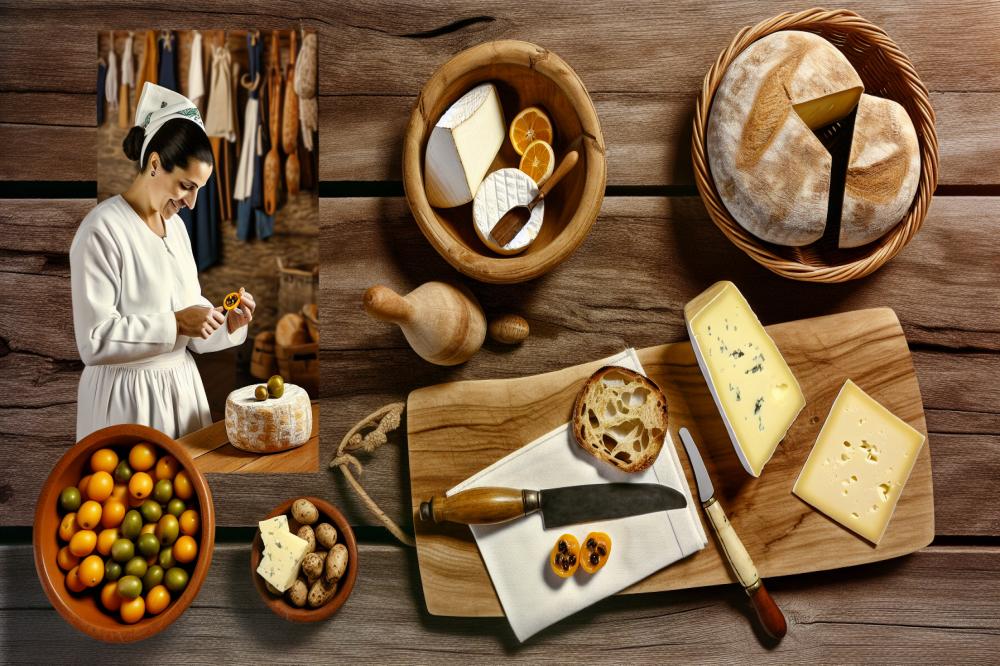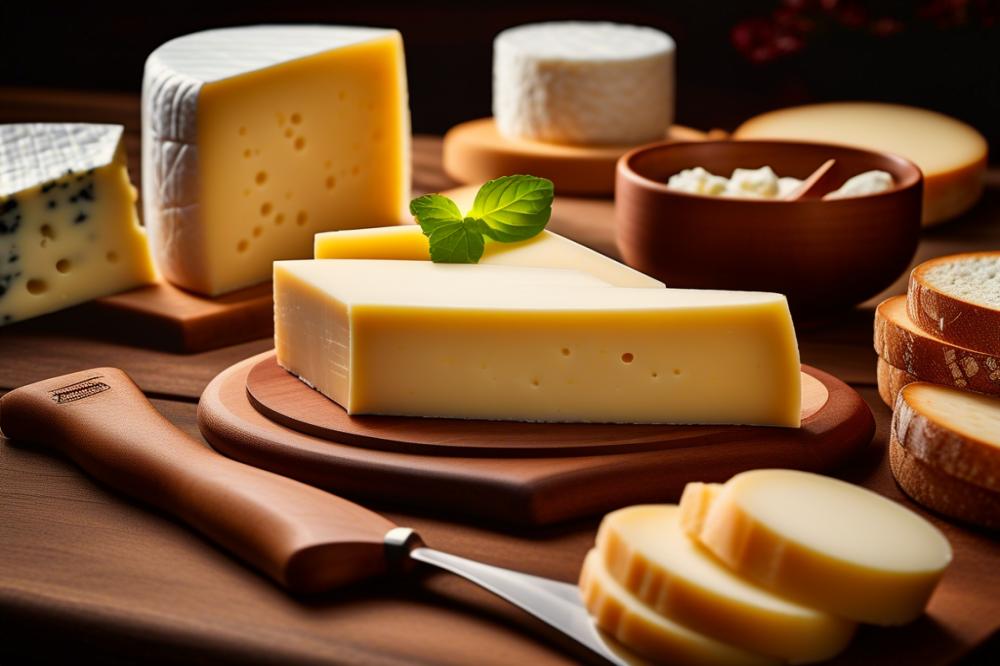Introduction
PDO Certification plays a crucial role in safeguarding the heritage of Portuguese cheese. This certification is designed to protect products deeply rooted in their local environment, preserving traditions and quality. It signifies that certain cheeses are made according to traditional methods and specific regional standards.
Portugal boasts a rich cheese-making tradition that reflects its diverse landscapes and culture. Many varieties hold a special place in the hearts of the people. From the creamy and tangy Queijo da Serra to the sharp and robust Queijo de Azeito, every cheese tells a story. These cheeses embody centuries of expertise passed down through generations.
Culturally, these cheeses are more than just food. They are symbols of identity, connecting people to their roots. Local festivities often celebrate these delicious products, showcasing their importance in Portuguese life. The assurance that comes with PDO Certification further enhances this connection. It tells consumers that they are enjoying a piece of Portugal’s culinary heritage with every bite. This not only supports local producers but also honors the unique flavors found in Portuguese cheese.
PDO Certification
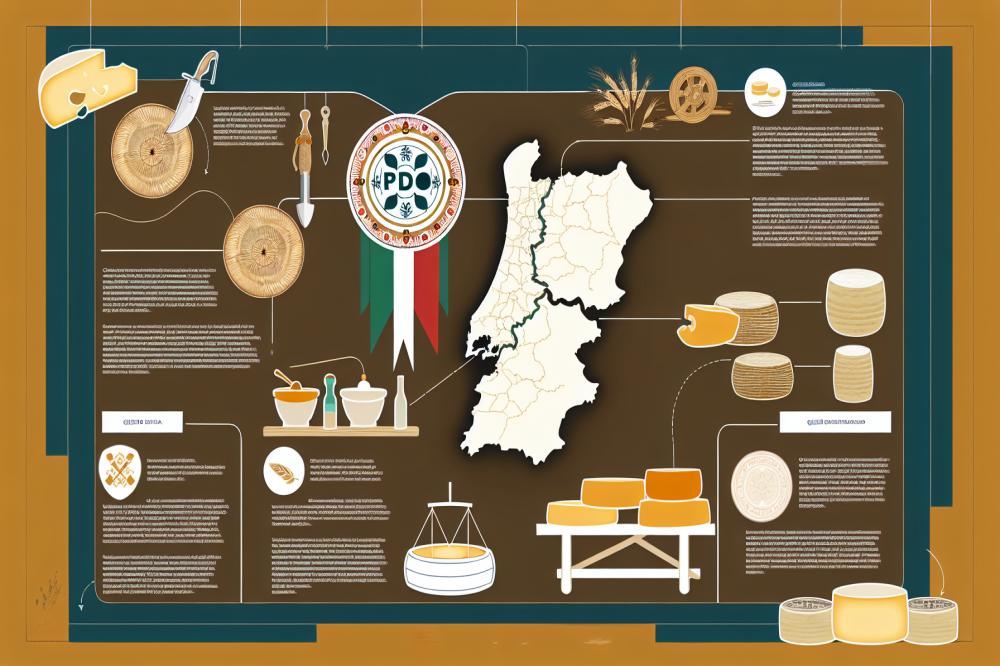
PDO stands for Protected Designation of Origin. This certification is vital for recognizing and preserving the heritage of various foods, particularly cheese in Portugal. It guarantees that a specific product comes from a designated area and is made using traditional methods.
For a cheese to qualify for this status, it must meet specific criteria. First, its production area must be clearly defined. This geographical authenticity plays a key role in the identity of each cheese. The land, climate, and culture contribute significantly to the flavor and quality of the cheese.
Second, traditional methods are paramount. These techniques have been passed down through generations. They define the way cheese is crafted, often by hand. Such practices cannot be replicated by mass production. This aspect ensures that each cheese retains its distinctive character.
Thanks to PDO status, consumers can enjoy high-quality products. The flavor of each cheese reflects its local roots. Cheeses bearing this certification often have richer tastes and textures. Quality control is a fundamental part of the PDO system, leading to consistency in what shoppers find on the shelves.
The impact of this certification goes beyond taste. It plays a critical role in protecting traditional cheese-making practices. As a result, local producers can sustain their recipes and methods. The community thrives when these practices are respected and recognized.
In summary, PDO certification promotes excellence in Portuguese cheese. It safeguards local traditions while allowing cheese lovers to indulge in authentic flavors. The stories behind each cheese become part of their charm, making every bite a taste of heritage.
Portuguese Cheese
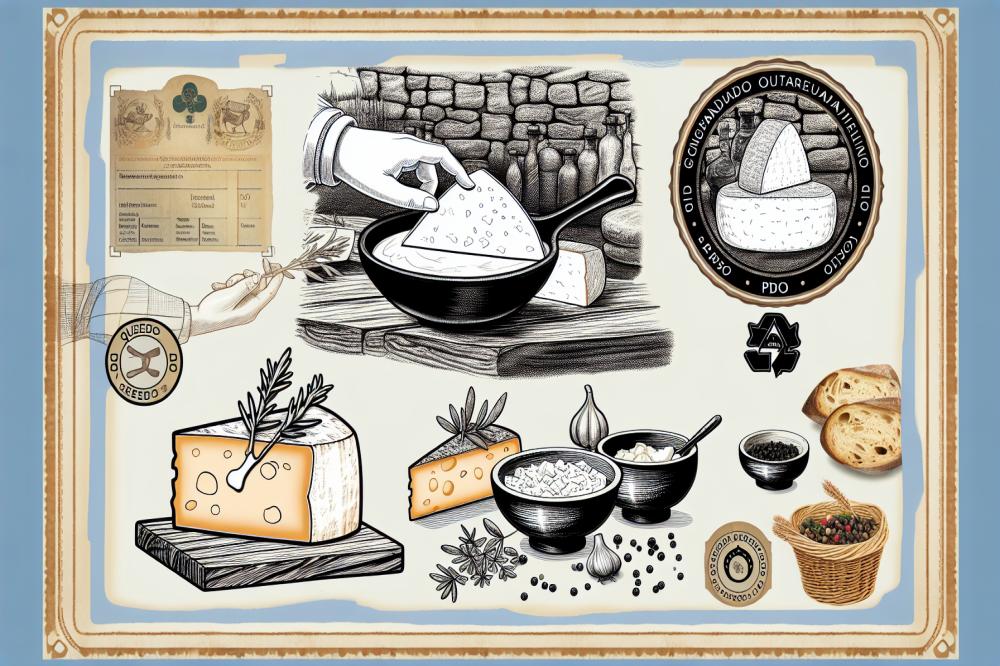
Portugal boasts a rich tapestry of cheese that reflects its diverse landscapes. Among these, Queijo da Serra stands out. This cheese is crafted from sheep’s milk, primarily in the Serra da Estrela region. What makes it distinctive is its creamy texture and strong flavor. The curd is hand-ladled into molds, giving it a rustic appearance. Aging elevates its taste, presenting notes of herbs from the sheep’s diet.
Another renowned cheese is Queijo de Azeitão. Originating from the Azeitão region, this cheese also utilizes sheep’s milk. Its soft and spreadable consistency is a hallmark. The cheese is traditionally made using artisanal methods, including natural rennet sourced from thistle. This process imparts a delightful tanginess that is truly memorable.
Queijo São Jorge
Queijo São Jorge is a semi-hard cheese coming from the Azores islands. Known for its robust flavor, it is often aged for at least three months. This cheese uses cow’s milk and is distinguished by its firm texture, complemented by a slightly spicy flavor profile. The unique climate of the islands contributes to the richness of its taste. Distinctive patterns on the rind come from the original molds that give it character.
Each of these cheeses demonstrates the dedication of Portuguese cheesemakers. They follow traditional methods that have been passed down through generations. Local ingredients play a vital role in the production of these cheeses. Farmers nourish their livestock with regional forage, which translates into the cheese’s rich flavors.
Visitors to Portugal should savor these delights and appreciate what they represent. PDO certification acts as a seal of authenticity. This certification guarantees that these cheeses are made in specific ways, from the right ingredients, and in their designated regions. Such protections help preserve the cultural heritage of Portugal’s dairy artisans.
Recipe: Queijo da Serra Toasts

These Queijo da Serra toasts are a delightful way to savor one of Portugal’s beloved cheeses. The combination of rustic bread, rich cheese, and fresh herbs makes this dish hard to resist.
Ingredients:
- 200g Queijo da Serra cheese
- 4 slices of rustic bread
- 2 tablespoons olive oil
- Fresh herbs (thyme or rosemary)
- Freshly ground black pepper
Recipe Instructions:
- Start by preheating your oven to 180 degrees Celsius.
- Brush each slice of rustic bread with olive oil on both sides.
- Place the bread on a baking tray and bake until golden. This should take about 5-7 minutes.
- When finished, take the tray out of the oven and let the bread cool for a moment.
- Generously top each slice with a piece of Queijo da Serra cheese.
- Add fresh herbs and a sprinkle of black pepper on top.
- These toasts are best served warm as an appetizer or a light meal.
Nutritional Information (per serving):
- Calories: 250
- Protein: 10g
- Fat: 20g
- Carbohydrates: 15g
Health Benefits:
This dish offers several nutritional benefits. Queijo da Serra is an excellent source of protein, making it a satisfying choice. It also delivers a good amount of calcium, which is vital for strong bones. Using PDO-certified cheese means you are getting high-quality ingredients that enhance your meals. The rich flavors come from traditional methods of cheese-making, which support your health and the preservation of culinary heritage. Enjoying these toasts is not just a treat; it’s a step towards a balanced diet.
Preserving Our cheese heritage
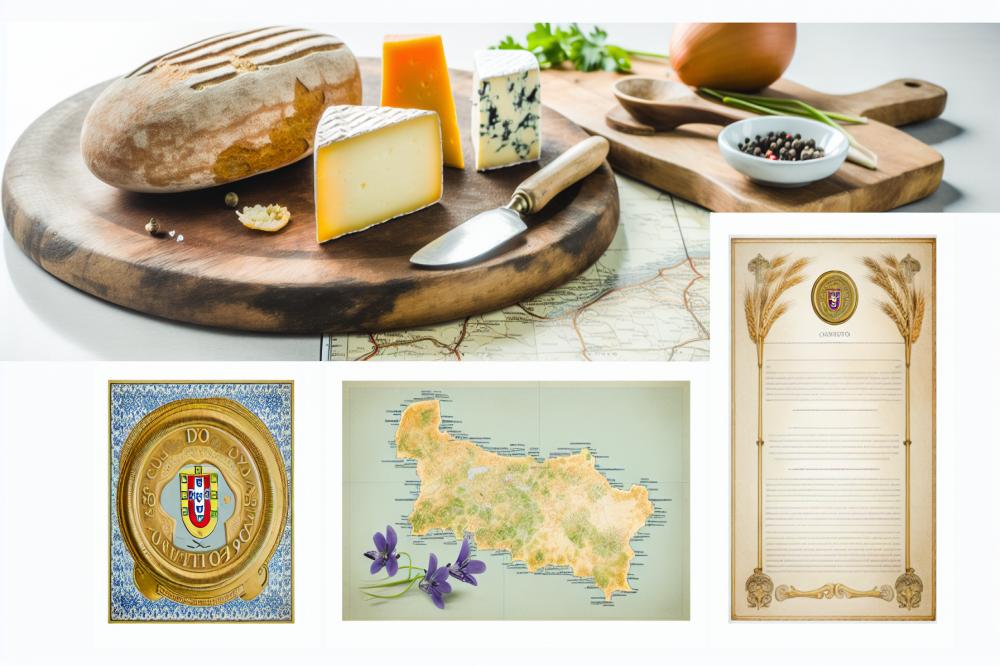
PDO Certification plays a crucial role in the preservation and promotion of Portuguese cheese heritage. It highlights the craftsmanship behind each cheese, showcasing the traditional methods used by local artisans. By choosing these certified cheeses, consumers support small producers who dedicate their lives to maintaining these culinary treasures.
Taste matters when it comes to these exceptional varieties. Each bite offers an experience rooted in culture and history. For those who may not have tried them yet, it’s time to explore the flavors that these cheeses bring. From creamy queijos de Serpa to aged queijo da Serra, there’s a rich bounty waiting to be savored.
Cooking with PDO-certified cheeses also adds an element of authenticity to recipes. Imagine preparing a dish that not only delights the palate but also connects you to the stories of the farmers and cheesemakers. Each flavor tells a tale of dedication, passion, and regional pride.
So, dive into the world of Portuguese cheeses. Each selection supports local traditions and paves the way for future generations to enjoy these remarkable products. Don’t miss out on the chance to appreciate the quality and cultural significance that comes with each piece of cheese. Taste the heritage that awaits you!

